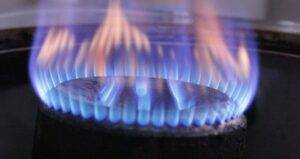With record numbers of Aussies now working and studying at home, the household budget has likely been a topic of discussion. For Australian households using a variety of gas appliances, all that extra time at home has likely resulted in a bump to your gas bill.
Now is the right time to explore the best ways to save on your gas costs. Thankfully, there are only two main areas to focus on when it comes to tackling your gas usage.
1. Reduce Overall Hot Water Usage
Heating water is a large part of any household’s energy bill. The Australian government’s Your Home page states that heating water alone makes up 21% of the total energy costs for typical households. Reducing the amount of water used around the house will have a direct impact on your gas bill.
2. Upgrade Your Hot Water System
Over half of Australian households use gas to heat water. It will be no surprise that the condition, energy efficiency, and type of hot water system you own will affect the cost of gas cost. If you have an older hot water system, investing in a new one will lead to long-term savings.
There are two main types of water heating systems that use gas: Storage and Instantaneous. For many of us, storage tanks (cylinders) will be what we are used to. In busy households, these tanks can run out of hot water.
Storage tanks with thermostats that maintain the water temperature are convenient, but they do take up space and require much more energy to run. An instantaneous gas heater, on the other hand, only heats the water as it is used. If you have an older storage tank installed, it’s a smart move to swap it out for instantaneous gas heating.
3. Run Your Dishwasher at a Lower Temperature
Many modern dishwashing machines come with energy-saving settings for you to take advantage of. A quality dishwasher will wash your dishes at a lower temperature, and as a result, create less demand on your hot water system.
4. Change Washing Machine Settings
Washing machines, much like dishwashers, will often come with low-cost energy saving settings. However, anybody can save on utility bills simply by switching to washing your clothes in cold water. Any reduction in the amount of hot water used will have a direct impact on energy usage and your gas bill.
5. Practice Energy-Saving Bathroom Habits
The biggest use of hot water in your house will be washing. Baths use significantly more hot water than showers. By switching to showers with a low-flow showerhead and taking shorter showers up to 10 minutes, you’ll see a nice cut in your gas costs. Fix any leaking taps or water pipes connected to your bathroom fixtures. These improvements will help reduce the water use and heating demands from your daily bathroom visits.
6. Look at Appliance Energy Ratings
Any appliance that uses water will display an energy rating. Keep an eye on the efficiency ratings when shopping for new appliances. Upgrading to energy-efficient appliances is a cost-effective strategy to lower your utility bills in the short and long-term.
7. Avoid Unwanted Heat Loss
Hot water storage tanks will, on average, lose 30% of the heat they generate. Investing in a hot water system with low heat loss will help lower your energy use costs from day one.
8. Watch the Temperature
No matter where you use hot water in the household, look closely at the water heater you’re using. By lowering the water temperature on a range of appliances, you will have a direct impact on your natural gas usage. A lower water temperature is also advisable if you have young children in your household.
9. Cook Smarter with Gas
With more people than ever cooking and preparing meals at home, the uptake of energy-efficient gas stoves and ovens has increased exponentially. Making smarter choices with how we cook with gas can help to reduce your overall gas consumption and lower your utility bills. Gas ovens heat up much faster than electric appliances for immediate energy savings.
Instead of following the preheating guidelines, simply heat up your oven 1 or 2 minutes before you put anything in it. This will cut down around a quarter of the time your oven is turned on for any recipe. It’s also important to check the seals on your oven door, as a damaged seal can lead to heat loss and additional energy consumption, forcing the oven to work much harder to maintain the right temperature.
10. Use Quality Gas Stove Cookware
Make sure the cooking pots you are using have snug fitting lids. If a lid is loose, it can take longer to heat. You can also make an economic choice to turn off the heat a few minutes before you serve. The heat in a covered pan will only minimally drop, and you’ll lower your heating bill.
Start Saving on Your Gas Today
By following these simple tips, you will use less gas and make some significant energy retailer savings around the house.
For even more savings, look around for a better deal on your gas energy plan in Melbourne, Sydney and across Victoria. You could save a hefty sum on heating costs and your quarterly gas bill!
Find more information on how you can save money on gas and electricity bills here:
You can also compare NSW gas plans, cheap Sydney gas plans and the cheapest Brisbane gas plans on Go Compare today.




